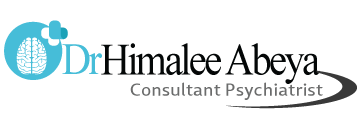Everyone feels anxious at times and that’s normal. Remember when you sat for that crucial exam or when you had to take an important decision, you might have become slightly nervous. But an anxiety disorder is somewhat different; it is a mental illness which could hamper your normal life. If you are suffering from it, you may be grappling with a constant feeling of fear and worry that could be overwhelming.
Which Type Of Disorder Is It?
- Do you get random fear attacks? It could be a panic attack. During such a panic attack you could have excess sweating, chest pain, and palpitations. You may have a panic disorder.
- Do have an inordinate fear of being embarrassed and ridiculed? Do you start to become anxious well in advance of a social event to the point you are consumed by it? You may have social anxiety.
- Do you feel uncontrollably fearful when you are on the top of a skyscraper? Or when you are inside closed space? It could well be a phobia.
- A common form of anxiety is a generalized anxiety disorder, which causes you to feel excess worry and tension for no reason.
Symptoms That You Have One
Some general signs are panic, fear, sleep problems, inability to stay calm. You may also feel cold, sweaty, numb or tingling in hands or feet. Some patients are found to have short breath, heart palpitations, dry mouth, nausea, and dizziness.
Want to Know What Causes This Disorder?
Well, there is no apparent reason as to why this disorder happens. Like other illnesses, it may arise due to changes in the brain and environmental stress. In addition genetic factors may be at play.
How is it Diagnosed?
For the initial diagnosis, you will have to be assessed by your general practitioner who would then refer you to a specialist (e.g. a psychiatrist). A psychiatrist will go through a complete assessment and establish a plan of treatment. This may also involve some investigations (e.g. blood tests).
What Kind of Treatment is Available?
- Numerous antidepressants work for anxiety disorders. Then there are some low-dose antipsychotic drugs which can be added for better treatment. You may even be recommended some anxiolytics which can lower the anxiety, but need to be used with extra caution. These specialized drugs need to be prescribed by a professional who understands mental health and medication well.
- Ther is good evidence for the benefit of use of psychological therapy for anxiety. This could be undertaken by a trained psychologist or a specialist such as a psychiatrist.
But Medication is Not the Only Treatment
You will have to make regular efforts to get over the disorder:
- Exercise is crucial for your mental and physical health, and it can ease the feelings of anxiety. With half-an-hour sessions included in your routine, you can keep the disorder at bay. It is helpful to stick to those exercises that are enjoyable to you.
- Relaxing activities to reduce your kevels of stress are beneficial. E.g. yoga.
- Sleep is the best medication. You should take at least 8-hours of sleep with shut-eye, but the quality and quantity of sleep is what matters.
Don’t let this Disorder overwhelm You!
Before anxiety starts to affect your life and your family, get it to touch with an experienced psychiatrist.
Call now @ (02) 98742210
